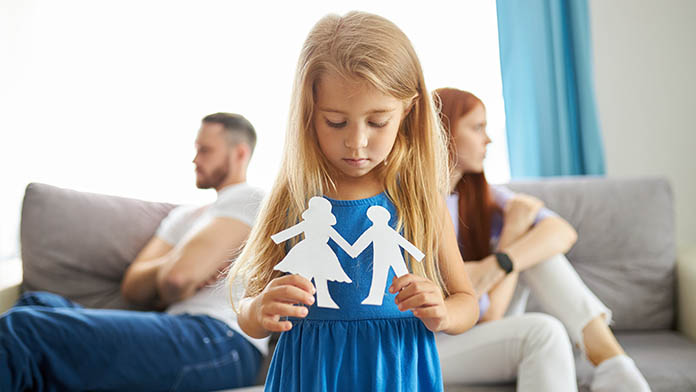How to communicate the separation to the children? When two parents decide to break up, they have to deal especially with the little ones in the house. They must be given the news by choosing the right words, ways and times. Children and teenagers, however often they can expect the imminent breakup after constant quarrels and long faces, are never really prepared to be told that mom and dad will no longer be together.
In this article
Separation: how to communicate it to children in the right way?
“In these cases, the keywords are clarity and transparency,” comments the psychologist and psychotherapist Rosanna Schiralli. «It all depends on the age of the children, but in general you don’t have to be ambiguous, use subterfuges or pretend that everything is fine. This does not mean, of course, that parents should reveal the “uncomfortable” details or the real reasons behind the separation to the little ones. Children are not parents’ friends, nor their confidants. The goal must always be to preserve children and young people, sparing them unnecessary suffering. For example, revealing a betrayal by one of the two parents» warns the doctor.
When children still go to kindergarten: what to do?
«When the child is only 2-3 years old, he is not yet able to understand the meaning of “separation”, so it is not necessary to address the subject with big words or demanding speeches» continues Schiralli. «In these cases, therefore, it is much better to act with facts: it is necessary ensure that the child continues to see the parent who moves away from home to another home. Over time, the child will understand by himself that the parent no longer lives with him. At this age, they get used to new situations easilywithout particularly suffering from it”.
Separation: egand the children are already in elementary school?
«When the children are already older, it is necessary break the news as a couple» continues the psychotherapist. “It’s best to avoid sound bites or words they might not understand or that might scare them. After simply explaining that mum and dad, although still loving each other, have decided to live in two different houses and that their love for them will remain the same, it is appropriate involve the little ones in “operational” tasks such as moving house, buying new crockery, painting the walls of the new house and so on. In this way they can assimilate the news of the separation, making themselves part of the changes» suggests Schiralli.
What mistakes should we try not to make?
“When you tell your children about a separation, there are no manuals or rules to follow,” explains the doctor. However, the same warning still applies: mom and dad must not put the other parent in a bad light, trying to bring the child to his side. This mistake, which unfortunately many adults make, is very serious. It’s about a psychological pressure enormous, which amounts to real violence. The child must continue to hear, see and love both parents, despite the fact that the relationship between the two has ended» warns Schiralli.
Is it right to recreate opportunities to be together after separation?
“No, although the child must continue to have a relationship with both parents, we don’t need to give life to fake theaters» advises the psychotherapist. «If we continue to organize outings, dinners and meetings to be all together, all we do is feed the child the illusion that sooner or later things will get right again. We need to maintain a certain consistency because the little one has to settle in a new situation, without living in the hope that mum and dad will get back together. Also because, after finally understanding that the separation is real and official, the child could develop feelings of disappointment, failure, helplessness and anger» concludes Dr. Schiralli.
Read also…

